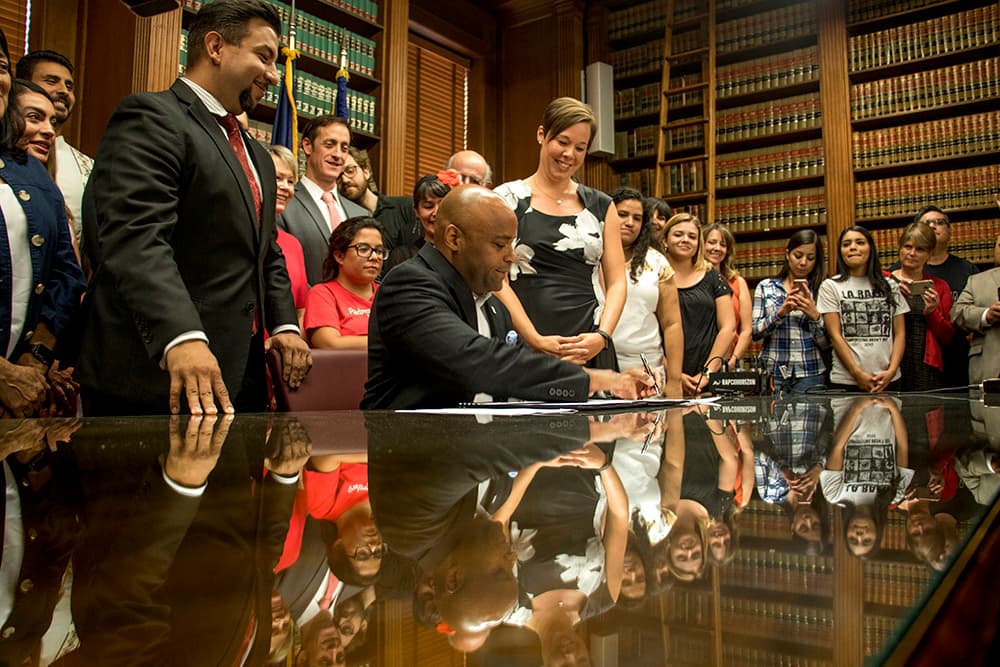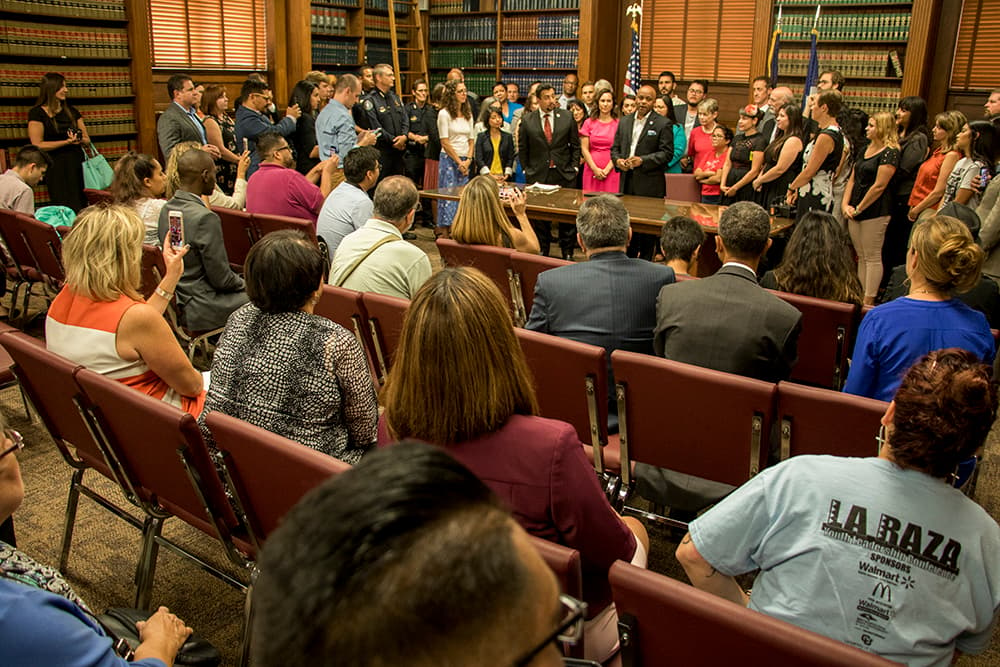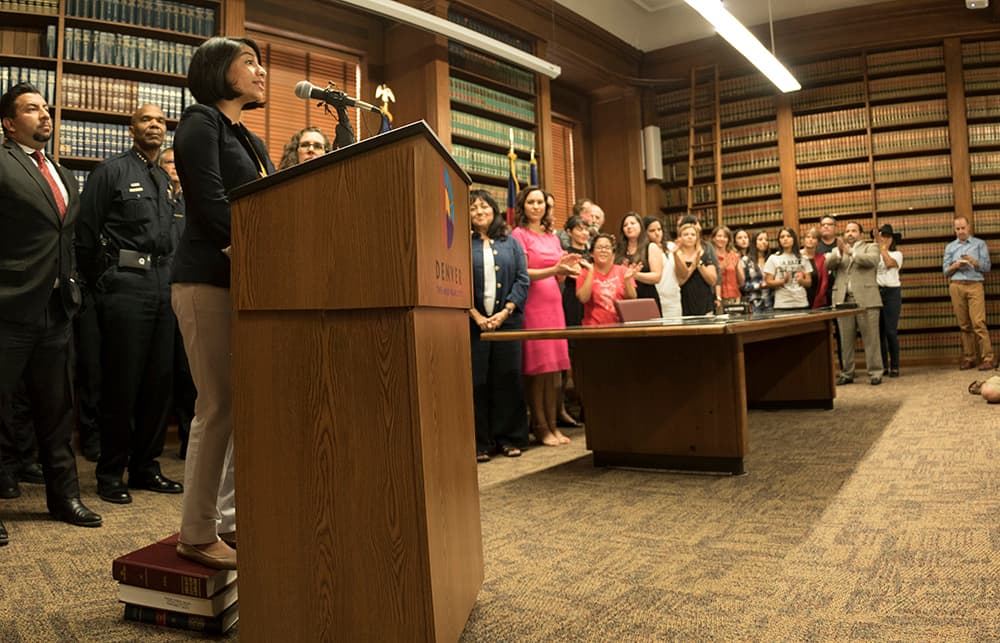
On Monday, Denver City Council adopted an ordinance that limits cooperation between local law enforcement and Immigration and Customs Enforcement, and on Thursday, Mayor Michael Hancock signed it into law. The bill represents a compromise between his office, council members and immigrant advocates and doesn't go as far as some initially wanted because it maintains the practice of giving ICE a heads up when someone wanted on immigration violations is set to be released from the jail.
Along with the bill, Hancock signed an executive order that outlines additional steps the city will take to protect immigrants, including establishing a legal defense fund and helping children whose parents have been deported.
Like the ordinance, the goal of the executive order is to "affirm Denver’s commitment to stand with immigrants and refugees" and "maintain Denver as a welcoming city where everyone can feel safe and thrive."
Here's what the city plans to do:
- Create a legal defense fund for those threatened with or in removal proceedings, with an emphasis on preserving families and protecting children. Money from the fund will come from the private sector and non-profits and will run at least through Jan. 20, 2021.
- Order the Denver Sheriff's Department to no longer seek federal funds from the State Criminal Alien Assistance Program, which requires the collection and sharing of information about national origin and immigration or citizenship status.
- Partner with immigrant and refugee communities to form a working group, which will track new developments in immigration law, policy and enforcement and analyze data to understand the impact of Denver's policies in a changing enforcement environment.
- Provide equal access to city services for all people, regardless of immigration status, to the maximum extent allowed by law.
- Protect victims and witnesses of crimes, regardless of their immigration status, by continuing to participate in the U-Visa program, which allows people cooperating with criminal investigations to stay in the country, by providing safe places for people who are waiting to appear in court and by seeking enhanced sentences for people who commit hate crimes against immigrants and refugees under the municipal code.
- Help families separated by deportation with child placement, applications for Special Immigrant Juvenile Visas and visitation between a parent and child who is in the custody of the Denver Department of Human Services when the parent has been deported and the child remains in the United States.
- Continue to engage in advocacy on behalf of immigrants, like pushing for courthouses to be treated as "sensitive locations," supporting refugee settlement and joining lawsuits on behalf of immigrant rights.
- Direct all departments to designate immigrant affairs liaisons to make sure they support the "full and active civic, social, political and economic participation of all of Denver’s people."













